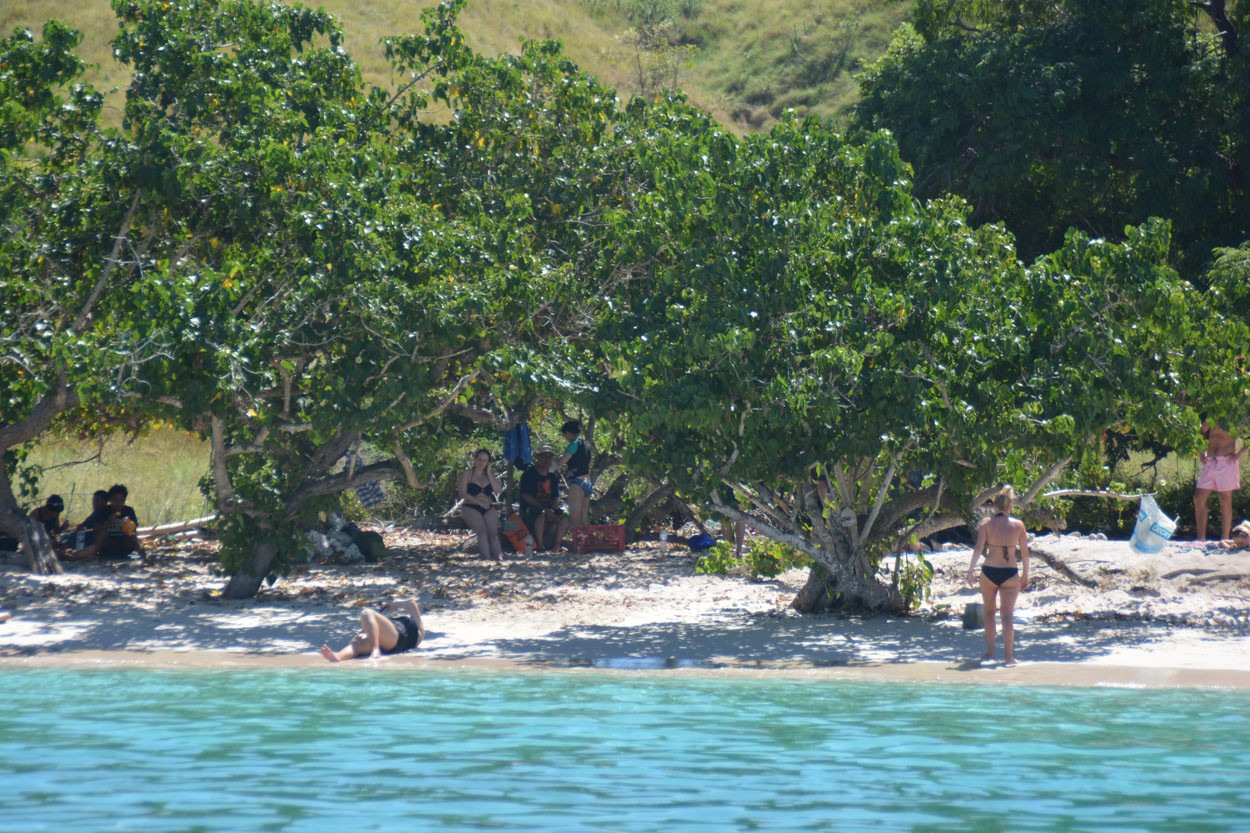Popular Reads
Top Results
Can't find what you're looking for?
View all search resultsPopular Reads
Top Results
Can't find what you're looking for?
View all search resultsCoronavirus cancellations continue to hit tourism in super-priority Labuan Bajo
To date, around 45,000 tourists have aborted their plans to visit Komodo National Park in Labuan Bajo from January to May.
Change text size
Gift Premium Articles
to Anyone
T
he spread of coronavirus disease (COVID-19) has continued to hit Indonesia’s tourism sector as more tourists with months-long travel plans canceled their trips to major destinations, including Komodo National Park in Labuan Bajo, West Manggarai, East Nusa Tenggara.
To date, around 45,000 tourists have aborted their plans to visit the world-renowned destination from January to May, Indonesia Tour Guide Association (HPI) regional head for East Nusa Tenggara Agustinus Bataona said.
The tourists, who had bought tourism packages last year in advance for vacations, had given cancellation notifications through travel agents across the province, he said.
Head of the Indonesia Tour and Travel Agency Association's (Asita) West Manggarai chapter Donatus Matur told The Jakarta Post on Wednesday that trip cancellations had become the new norm since the impact of the coronavirus had started to be felt in Labuan Bajo.
“Especially since global travel warnings have been put in place as the virus has spread globally. We do hope this coronavirus can be contained soon, so the tourism sector doesn’t remain sluggish,” said Donatus.
Read also: Battered by virus: Businesses across Indonesia feel the pinch
West Manggarai’s tourism practitioner Maria Oktaviani Simonita Budjen echoed the same sentiment, saying that locations across Labuan Bajo had become quiet as tourist visits continued to drop.
“It’s unlike normal days, when tourists stroll around the city of Labuan Bajo,” she said.
Labuan Bajo — which is among the government’s top five destinations prioritized to boost tourism — is not the only tourist magnet being given a wide berth as a result of COVID-19.
Indonesia’s popular tourist destination Bali has also been hit hard due to the outbreak, which on Wednesday was formally declared a global pandemic by the World Health Organization (WHO).
Bali Immigration Office recorded 392,824 tourists arriving in February, a 33 percent drop from January after the government imposed travel bans to and from mainland China on Feb. 5 to curb the spread of the outbreak. Australia replaced China as the biggest source of foreign tourists last month, followed by India and Japan.
Meanwhile, travel and hospitality-related industries also continue to suffer from low occupancy rates and cancellations.
The Indonesian Hotel and Restaurant Association (PHRI) reported that the country's overall occupancy rate had fallen below the regular low season average of 50 to 60 percent to 30 to 40 percent since the outbreak of the coronavirus in China in early January. Bali, Jakarta, Manado in North Sulawesi and Batam and Bintan in Riau Islands were currently the worst-hit areas.
Moreover, state-owned airport operator PT Angkasa Pura I reported that as many as 12,703 flights with about 1.67 million passengers had been canceled from January to February at its 15 airports across Indonesia.
Read also: COVID-19 impact far more complex than 2008 crisis: Sri Mulyani
Of the flights, 11,680 are domestic and 1,023 are international flights departing from its airports, including I Gusti Ngurah Rai International Airports in Denpasar, Bali, and Juanda International Airport in Surabaya, East Java.
Statistics Indonesia (BPS) revealed on Monday that tourist arrivals amounted to 1.27 million in January, around 5.85 percent higher than the 1.2 million recorded in the same month in 2019.
However, the growth is much lower than the around 9.5 percent increase in arrivals during January 2019 compared with the same period in 2018
Indonesia has set a target of welcoming 17 million tourists this year. Last year, a total of 16.1 million tourists visited the country, a far cry from the 2019 target of 18 million. (roi)










